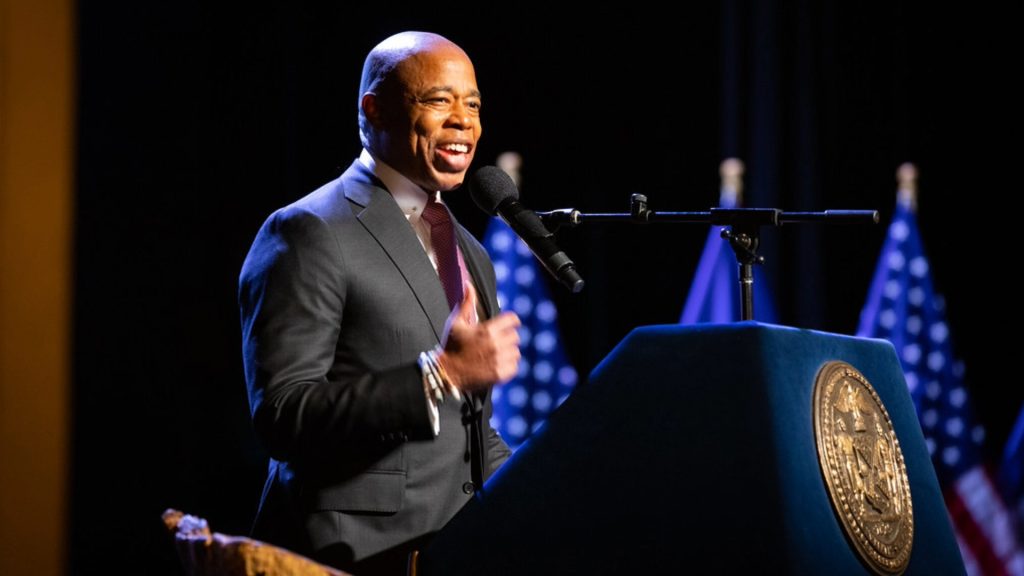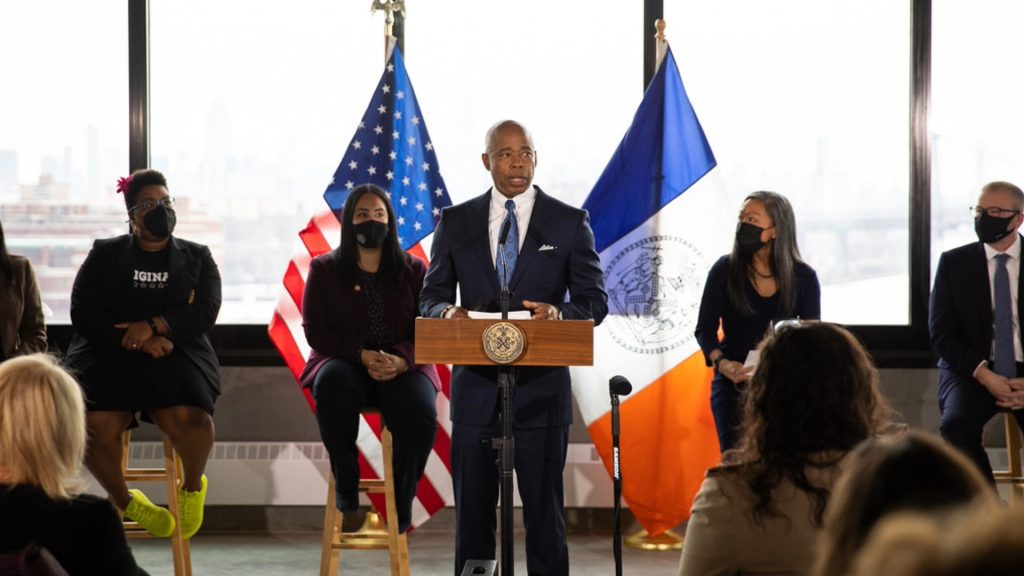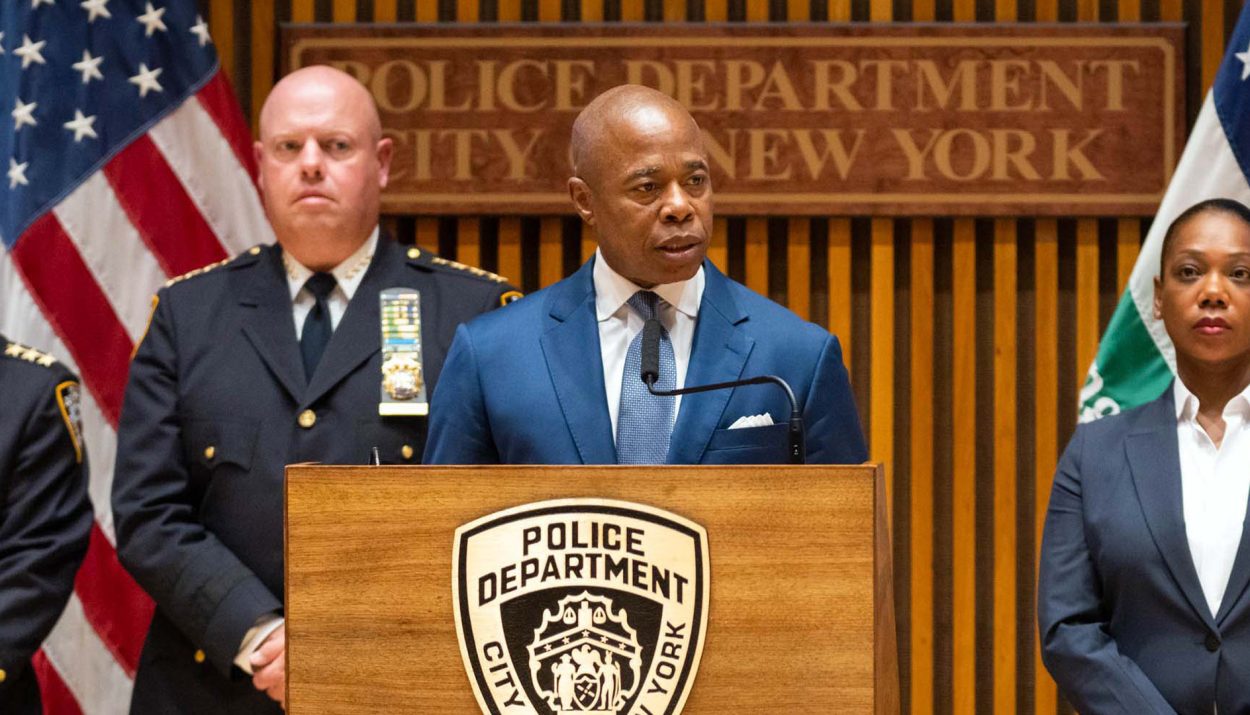A result of a new policy recently introduced by the mayor of New York City Eric Adams is causing a great stir among agency heads and elected officials. Limiting lawmakers’ communication with agencies marks a huge shift in how intergovernmental affairs are handled within the City. The reactions have ranged from confusion and frustration to outright criticism.
The New Policy Changing Intergovernmental Affairs
The web page has been set up by Adams’ administration for elected officials to book appointments with agency commissioners or their executive teams. On this page is a two-page Google Form that contains 14 questions including where you reside when making an appointment request whether you are an elected official or staff member – or both.

It also aims at simplifying organizing such meetings and collecting all essential information before their commencement.
What Is The Purpose Of This New Policy?
So, what does this new policy aim at? This move means that more intergovernmental affairs work would be routed through Adams’ team at City Hall. By centralizing these interactions, the administration hopes to improve efficiency and maintain a high level of responsiveness to all members of the public.

A spokesperson said, “We must ensure that we have the right processes in place to streamline our services and maximize our resources.”
The Reaction From Lawmakers Is Frustration and Anger
Many lawmakers are frustrated with this new system because they were not involved in its creation or consulted before its launch unless one day ago after it was already implemented. Shahana Hanif, a council member, expressed concern about additional bureaucracy stating “We recognize collaboration is essential but we don’t want to be tied up in pages and pages of needless bureaucracy.”

The administration did not contact her as well as other council colleagues before launching the page. The lack of interaction here contributed to negative reactions to the recent policy.
Lawmakers’ Concerns Regarding Collaboration
The new policy has been met with concern from lawmakers, particularly regarding the additional bureaucracy it introduces.

However, there is a general worry among many lawmakers that this new policy could make it more difficult for city agencies to communicate and work effectively with elected officials.
How Lawmakers Became Aware Of The Policy Raises Concerns
Another issue has been about how the new policy was discovered by lawmakers. For instance, Council Member Shahana Hanif learned about the new system only when one of her colleagues on the Council shared the page with her.

This lack of direct communication from the administration about the new policy has contributed to frustration and confusion among lawmakers.
The Process Of Filling Out A Two-page Form
The process for requesting an audience with agency commissioners or their executive teams involves filling out a two-page Google Form. At first sight, this may seem a cumbersome bureaucratic hoop that needs to be jumped through by lawmakers and city officials.

These officials need information or collaboration from other agencies and each other. Nevertheless, certain council members have argued that it is another unnecessary barrier between them and their constituents.
How Did The Administration Respond?
In response to these concerns, a spokesperson for the administration stated, “We must ensure that we have the right processes in place to streamline our services and maximize our resources”.

This statement suggests that the administration views the new policy as a necessary measure to improve efficiency and responsiveness.
The Implications Could Negatively Affect Governance
The new approach implemented by the city has so many outcomes. The administration wants to control these interactions, which usually involve various agencies and elected representatives who are always in touch with them.

Although this might enhance efficient interaction, it could also have negative effects on the open conversations that characterize good governance.
What Are The Potential Consequences Of Such A System?
Among the possible outcomes of this new policy is a slump in response times. There is, however, the possibility that some inquiries may be held up once too much communication is going through one clearinghouse.

In addition, this would affect the ability of elected officials to handle their constituents’ issues promptly.
The Contradiction In Adam’s Approach
One contradiction in Adam’s approach was pointed out by Rita Joseph, a Council Member. This new policy however does not seem to be reducing bureaucracy as it should according to his stated goal.

Joseph argued that “This just means more red tape and [Adams] is the one talking about removing all the red tapes… This highlights a potential disconnect between the administration’s stated goals and the practical effects of its policies.”
The Policy’s Criticism From Council Members
The new policy has been met with criticism from several Council members. One Council member stated, “This is just a bad way to run your government, pure and simple”.

This criticism reflects a broader concern that the new policy could hinder effective governance and cooperation between city agencies and elected officials.
How Will This Policy Impact on New Yorkers?
The new policy could have a significant impact on New Yorkers themselves. A delay in the communication between agency heads and lawmakers could not only affect the speed at which constituent concerns are addressed but could also slow negotiations over agency-specific legislation.

This could potentially lead to slower response times for public services and could impact the effectiveness of local government, thus affecting service delivery for New York citizens.
What Does The Future Of The Policy Hold?
The future of this policy is uncertain. A person familiar with intergovernmental affairs who was granted anonymity to speak about the situation speculated, “I’m sure the more savvy commissioners will ignore it”.

This suggests that there may be resistance to the new policy from within the city agencies themselves. It remains to be seen how this will play out, and what impact it will have on the workings of the city’s government.
The Policy Significantly Affects Government Communication
In conclusion, Mayor Eric Adams’ new policy limiting agency communication with lawmakers represents a significant shift in the way the city’s government operates. While the administration argues that the policy will streamline services and improve efficiency, lawmakers have expressed concerns about increased bureaucracy and potential delays in response times.

As the situation unfolds, it will be important to monitor the impact of this policy on the workings of the city’s government and its relationship with the public.






